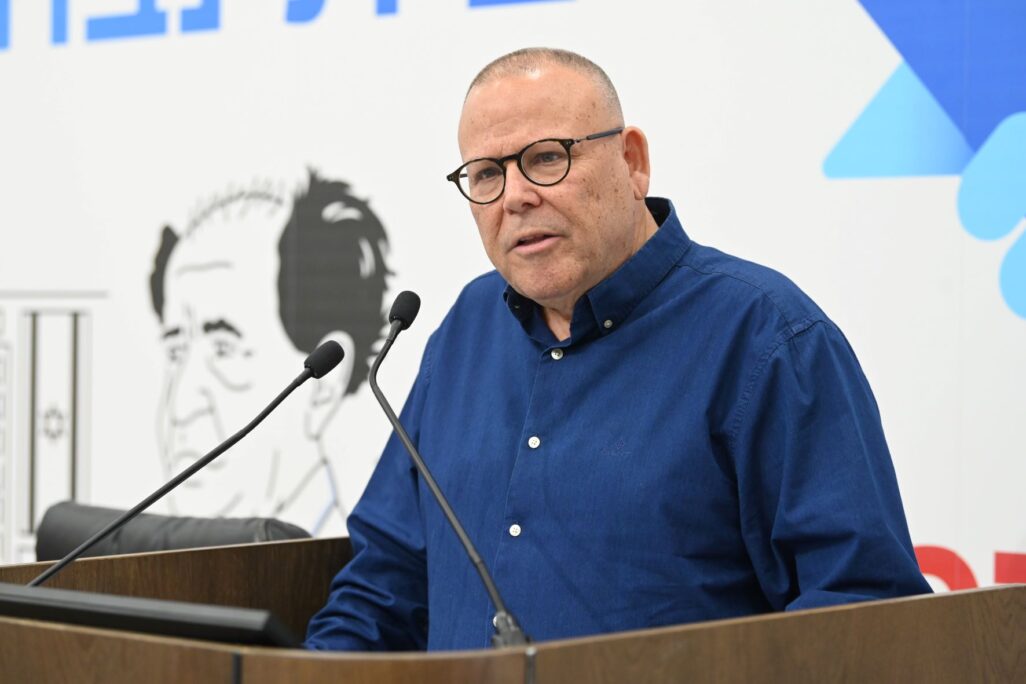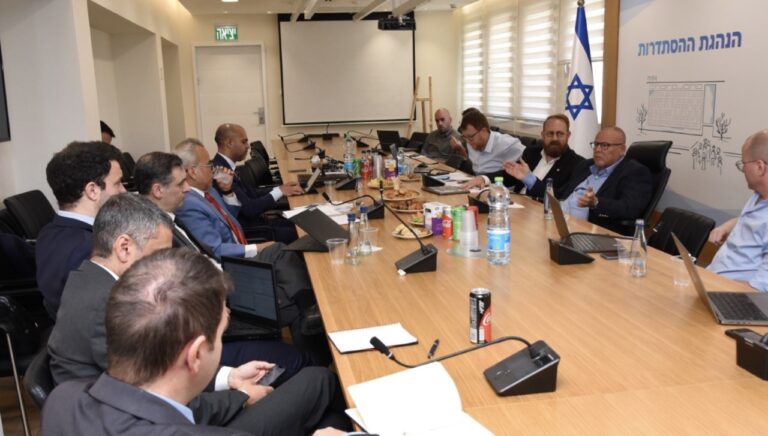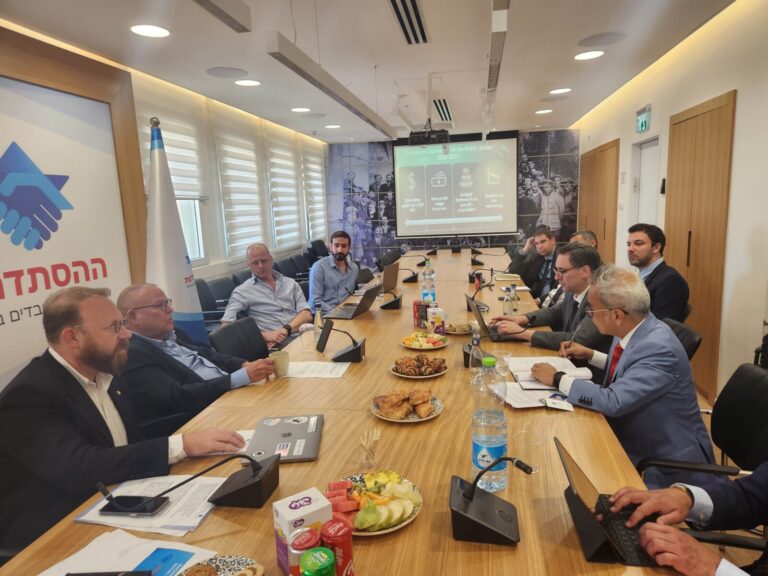
Histadrut Chairman Arnon Bar-David held a meeting in his office earlier this month with a delegation from the International Monetary Fund (IMF). This meeting was one in a series of discussions and consultations that the IMF delegation is holding with the economic leaders in Israel, in preparation for drafting a suite of recommendations to be submitted to the IMF Board of Directors and the Israeli government.
As part of the meeting at the Histadrut offices, the delegation was presented with both macroeconomic data and an overview of what’s been taking place in the Israeli labor world in recent years. Among other things, the parties discussed issues such as the reduction of inequality in the incomes and wages of workers in Israel, and increasing labor productivity.
The Histadrut’s representatives presented many of the steps taken by the Histadrut in order to protect Israeli workers, such as the framework agreement recently signed with the Ministry of Finance, the reform of the wages of education support workers, the new agreement at the Israel Railways and the agreements at the electricity company and the seaports.

"The framework agreement that was recently signed brought with it three key pieces of news: a wage increase of up to 14%; shortening the work week by two hours; and the cost of living grant,” said Histadrut Chairman Arnon Bar-David. “In recent months, we have completed major economic reforms, which have boosted Israel's economy, including the Electric Company, the ports and Israel Railways. We have also achieved dramatic changes in the wages of social workers and of educational assistants."
Bar-David explained how public sector workers had contributed to maintaining the stability of Israel's economy during the COVID-19 period, saying: "The public sector has played a significant part in promoting the state economy, and therefore the government must strengthen these workers through vocational and technological training. I very much hope that the country will get out of the crisis it is in as soon as possible, and start to move forward."
In addition, Bar-David commented on the current political crisis roiling the country: "The judicial reform that is taking place here has set the country back in every way. For about half a year, nothing has been managed or planned in the State of Israel. However, amidst the chaos there is a silver lining – the collective agreements we signed, without a single day of strike, with the Minister of Finance, who opposes trade unions.
“This highlights the strength and responsibility of the Histadrut,” he continued. “That's how we have acted and how we will continue to act. The Histadrut is the most responsible and balancing factor in the State of Israel.”

Vice President of Economics and Policy and General Director of the Trade Union Division in the Histadrut, Adam Blumenberg: "There is great importance in the cooperation between the Histadrut and the government, both in reducing inequality and in promoting professional training for employees. We insisted on this in the recently signed agreements, taking responsible and graduated steps, in order to maintain the stability of the economy during this period of inflation and in light of the challenges that the judicial reform brings with it."
CEO of the Arlozorov Forum, the Histadrut’s pro-labor think tank, Amit Ben-Zur: "The challenges facing Israel are partially the result of the underinvestment that has been going on for years. It is reflected in the damage to both human and physical capital, labor market policies and training, and a decrease in union coverage. Policy measures, such as a distribution policy and a dedicated policy for the labor market, are necessary to deal with the rising inequality and to promote economic stability."
The meeting was attended by the International Monetary Fund: delegation head Miguel Segoviano, Pablo Druck, Shakill Hassan and Luca Mazzone, as well as Shai Ben-Zur, Israel's representative at the IMF, and Nadav Steinberg, an economist in the research division of the Bank of Israel. Representing the Histadrut, the following participated: Chairman of the Histadrut Arnon Bar-David, Vice President of Economics and Policy and Director General of the Trade Union Division Adam Blumenberg, Director General of the International Relations Division Peter Lerner, Director General of the Arlozorov Forum Amit Ben-Tzur, and Head of the Department of Economics and Social Services in the Arlozorov Forum, Yoni Ben-Bassat.
This article was translated from Hebrew by Rose Angela.






